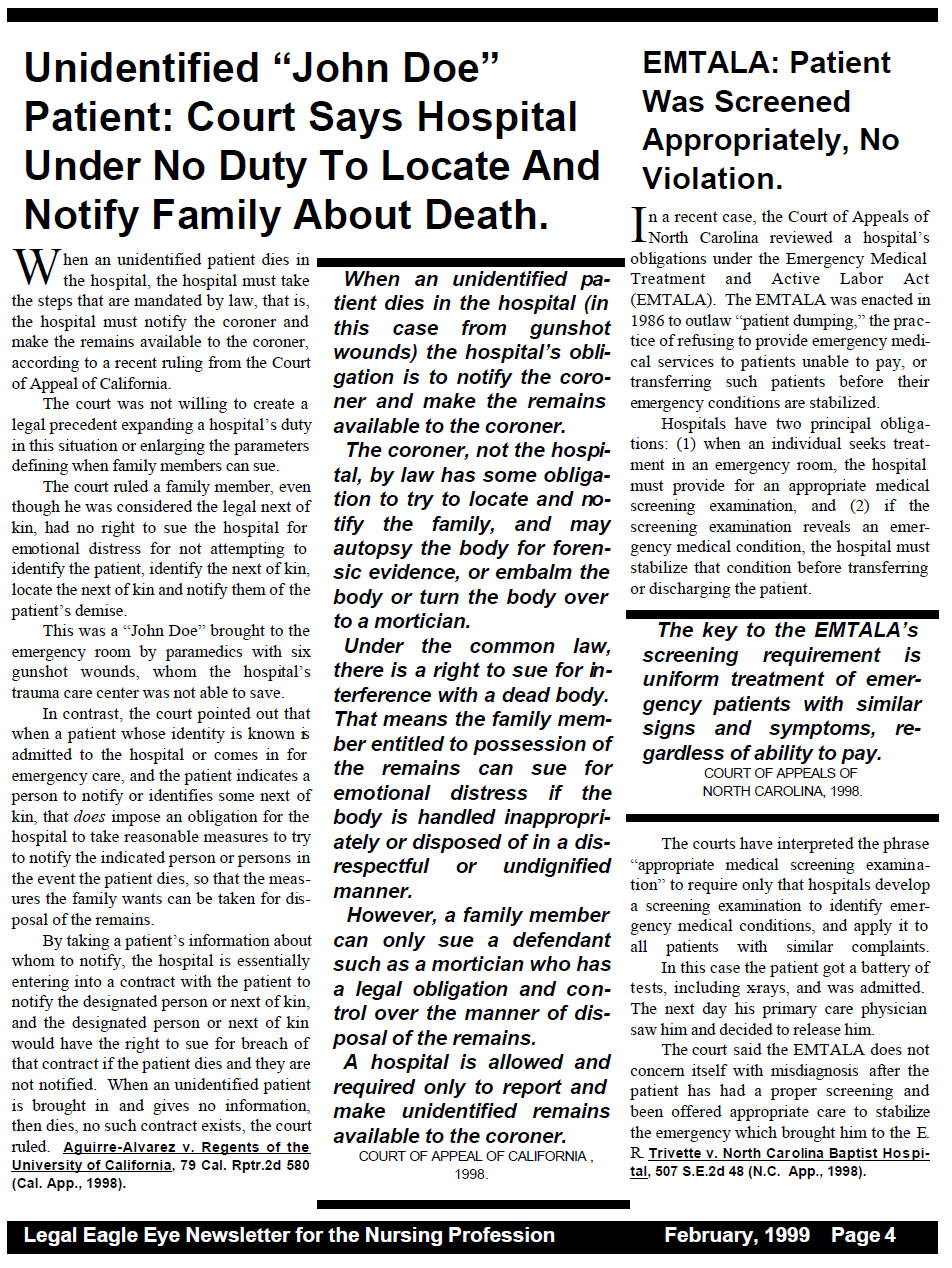

Quick Summary: The key to the EMTALA’s screening requirement is uniform treatment of emergency patients with similar signs and symptoms, regardless of ability to pay.
COURT OF APPEALS OF NORTH CAROLINA, 1998.In a recent case, the Court of Appeals of North Carolina reviewed a hospitalís obligations under the Emergency Medical Treatment and Active Labor Act (EMTALA). The EMTALA was enacted in 1986 to outlaw "patient dumping," the practice of refusing to provide emergency medical services to patients unable to pay, or transferring such patients before their emergency conditions are stabilized.
Hospitals have two principal obligations: (1) when an individual seeks treatment in an emergency room, the hospital must provide for an appropriate medical screening examination, and (2) if the screening examination reveals an emergency medical condition, the hospital must stabilize that condition before transferring or discharging the patient.
The courts have interpreted the phrase "appropriate medical screening examination" to require only that hospitals develop a screening examination to identify emergency medical conditions, and apply it to all patients with similar complaints. In this case the patient got a battery of tests, including x-rays, and was admitted. The next day his primary care physician saw him and decided to release him.
The court said the EMTALA does not concern itself with possible misdiagnosis later, after the patient has had a proper screening examination and been offered appropriate care to stabilize the emergency condition which brought him to the emergency room. Trivette v. Hospital, 507 S.E.2d 48 (N.C. App., 1998).